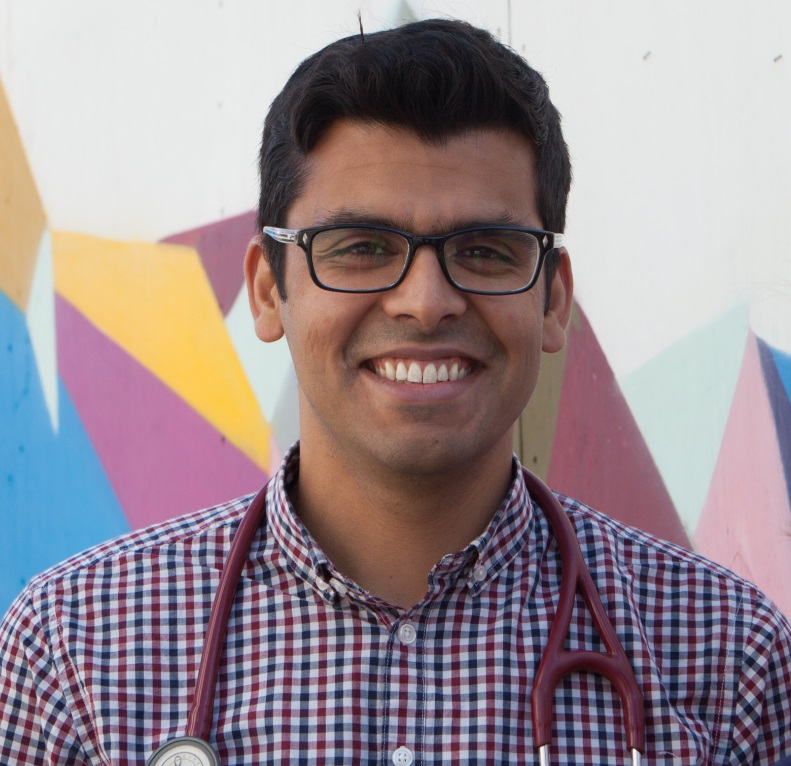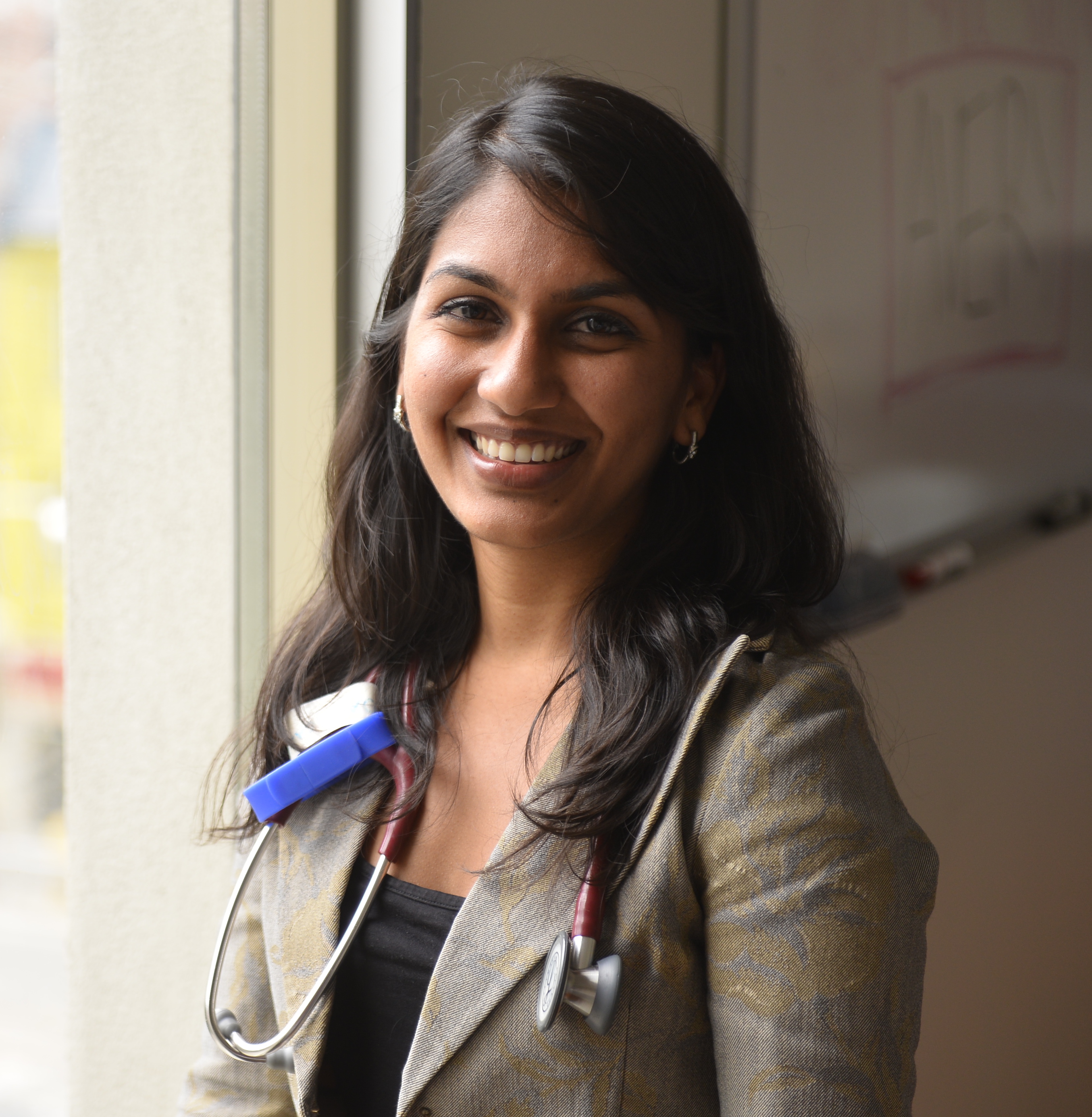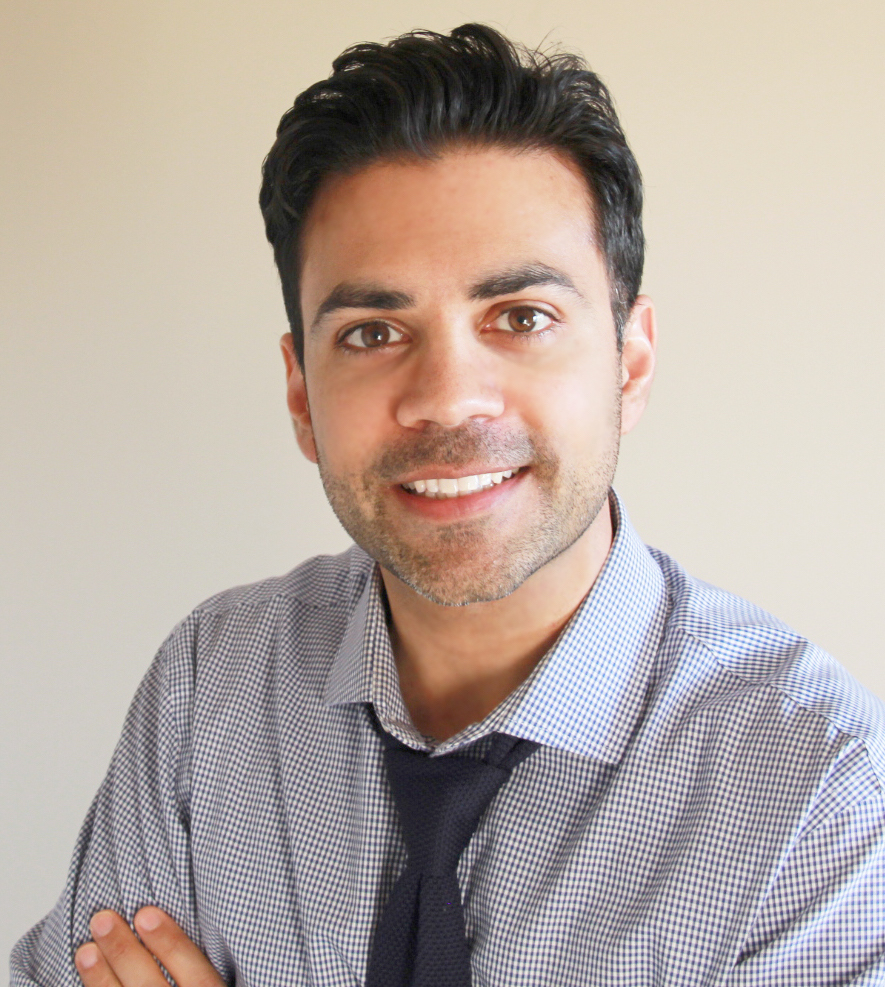In the wake of a viral video showing a white woman demanding to see a “white doctor” in a Canadian clinic, VICE News reached out to doctors of colour to hear their reactions to the video, and how race affects their work. All four doctors we spoke to said the video was shocking, but not surprising, and that it touches on the racism they have experienced in their own practices. Some said the woman’s hostility and overt racism reflects a rise in xenophobia and hate crimes in Canada and the U.S. Several doctors told us this incident shouldn’t be seen as an isolated incident of racism — but rather a sign of broader patterns in society.
Danyaal Raza — Toronto, Ontario

I’m a South Asian/Pakistani Canadian who is also Muslim, and I work in Toronto’s Regent Park. I had conflicting reactions to the video: I was shocked but not surprised. A lot of the racism doctors experience tends to be systemic, but this was an explicit form of overt racism I’m not used to. Because I occupy a position of social privilege in a physician-patient relationship, racism tends to be subtle, and being a doctor can insulate you from that experience. I’ve never had a patient say they won’t see me because I’m racialized. That’s why it was so jarring.
Videos by VICE
Most of the time when we talk about racism in health, we’re talking about the racism our patients experience; my patients are cab drivers, line cooks, retail workers, and because they don’t have as much social privilege as doctors, they experience racism more overtly. That’s why it’s so important to have diversity in the medical field, so that racialized patients, including the new immigrants who I see, can see themselves in the people who are providing them care.
This woman’s behaviour is really a symptom of how bad xenophobia is becoming.
The xenophobic sentiment from the woman in the video is part of a trend in Canada, with StatsCan reporting hate crimes toward Muslims are up. So this woman’s behaviour is really a symptom of how bad xenophobia is becoming — that she feels emboldened to say racist things out loud.
As doctors, we take the Hippocratic Oath and we have a responsibility to provide care regardless of who is in front of us. If a patient said something racist to me, there is no question that I would help them and provide the best care, but it doesn’t make it easy on your spirit.
Ritika Goel — Toronto, Ontario

I’m a family doctor working at three clinics in Toronto. I work with people experiencing homelessness and people with varying immigration status including refugees, people with mental health and addictions issues. I’m a South Asian woman, born in India, and I’m an immigrant to Canada.
Canadians practice a private, polite racism, so I was surprised to see someone make such overtly racist statements. When we see events like this caught on video, the natural reaction is to talk about the individual making the statements, but it’s important for us to focus on this as a reflection of the society that we live in. She is not simply one misguided individual. Our society has created this person and has allowed her to feel she can behave this way, so this is an opportunity for us to look inward rather than saying the rest of our society doesn’t have any issues of racism or xenophobia, which we know is not true.
In the medical field I have experienced both overt and structural racism and sexism. In one case, the husband of a woman who was in labour told my colleagues he didn’t want to see brown doctors. He was asked to leave, and the woman was embarrassed by her husband. I remember feeling vulnerable. I was a trainee in less of a position of power, so I was unsure what I was able to say. It was helpful that my colleagues asked him to leave. But there are other times when I’m in a room full of physicians when I’m aware my voice might carry less weight, or I feel I’m not empowered to speak up.
Canadians practice a private, polite racism.
It’s important to recognize that racialized nurses and receptionists experience more overt racism than racialized doctors do, and I’m not sure this incident would have received as much attention if it was directed at staff rather than doctors. I have used my privilege to confront patients who say racist things to clinic staff. It’s important as doctors that we balance access to care with confronting racist behaviour when it happens. You don’t want to deny anyone care, but we need to address the behaviour directly and have a conversation about it.
There’s a growing feeling of resentment that’s bubbling to the surface from people who see groups like Black Lives Matter and Idle No More asking for equality. We’re seeing communities saying racism is not OK, but those conversations can make people in privileged positions feel like those rights come at a cost to them when in reality they don’t.
Alika Lafontaine — Grande Prairie, Alberta

I’m a hospital-based doctor practicing anesthesia in Grande Prairie, Alberta, north of Edmonton. Our community is about 16 percent First Nations people, which is a higher proportion compared to other areas of Alberta. Like many First Nations people, I’m a mix of backgrounds — Cree, Anishnabe and Polynesian. I was born in Southern Saskatchewan in Treaty 4 territory.
Some people don’t think I’m a doctor — they think I’m security.
I wasn’t surprised by the video — these things happen regularly. I’m visually an ethnic minority, so I’ve faced racism at work. Some people don’t think I’m a doctor — they think I’m security. I’ve had patients who are hesitant to engage and will ask me about my qualifications and where I’ve trained. Because I’m the only one on call, they don’t have a choice of physician and it manifests in obvious anxiety. They may not be truthful, or they withdraw when you do exams. Because of this, I frontload my conversations with where I was trained and how many years I’ve been practicing to put patients at ease and help them get the care they need.
I’ve also had awkward interactions with fellow physicians and healthcare staff. They have asked questions about my qualifications, whether I deserve to be where I am, or if I’m only there because of a quota. One time someone asked, “Are you really Indigenous? I never knew, so you must not be.”
One time someone asked, “Are you really Indigenous? I never knew, so you must not be.”
First Nations and Indigenous people face overt and structural racism in the medical system. There was one situation — I can’t be too specific because I don’t want to identify anyone — when there was a misdiagnosis of an Indigenous patient, and a very bad outcome. I had to push for a review of that case, and without that review, the person at fault would not have admitted they made a mistake. Generally speaking, the onus is put on patients of colour to prove that harm happened while white patients are most often believed.
From the case of Brian Sinclair in Winnipeg, who died after a 34-hour Emergency Room wait because healthcare staff assumed he was drunk, to the doctor in New Brunswick who posted a note telling “native patients” not to ask for tranquilizers or painkillers, to the community of Wapekeka, which is experiencing a suicide crisis but the government isn’t responding adequately — we need to acknowledge these truths before there can be reconciliation. We need leaders in the medical field — the president of the Canadian Medical Association, deans of medical schools, the Health Minister — to stand up and say there’s a problem.
Hakique Virani — Edmonton

I practice public health and addictions medicine in Edmonton. Most of my patients present with substance use. I’m a Canadian of South Asian descent. My family’s roots are in the Indian subcontinent, but most of my family has never been there — they’ve been in Canada since 1972.
I was shocked that someone captured the woman’s racist tirade on video, but I don’t think this is an unusual experience per se. I certainly have experienced this. When I was a trainee working in the hospital, there were patients you could tell were uncomfortable with a visible minority examining them, but you do your best to accommodate them. I’ve heard patients say, “Is there someone else who can see me?” or “You won’t understand” — without coming out and saying “because you’re brown.” I let it roll off my back, hoping that by giving them the best care possible I might change their opinion.
There was a guy at my school back in the 1980s. I remember I was playing soccer with a bunch of other boys of South Asian descent, and this guy wanted to use the net, but instead of joining us when we invited him, he yelled: “Go back to India you fucking Paki!” That was a really funny comment because people from those countries don’t always get along. It’s not the last time I’ve heard that comment. Anyway, years later he was a patient of mine. I recognized his name, but he didn’t recognize me. I debated whether I should tell him about the time he was cruel, but in the end didn’t see any benefit to it, and people change, so I provided care compassionately. I thought about that when I saw the video. If someone or their family member is sick, you’re not going to see them at their best. What’s expected of us is to provide care in bad situations, not perfect ones.
What’s expected of us is to provide care in bad situations, not perfect ones.
With patients of mine, many of them are also visible minorities or are marginalized in other ways. They have told me they feel comfortable with me because I must know what it feels like to be treated differently. It’s not uncommon for women or people who identify as LGBTQ2S to feel comfortable with doctors with similar identities to themselves. I think it was OK for the woman in the video to ask to see a physician she’s more comfortable with. I’m not suggesting that people should be able to demand to see doctors of a certain colour — we shouldn’t allow racism — but we should recognize that people feel comfortable with people who have the same experiences as them.
More
From VICE
-

Screenshot: Kojima Productions/YouTube -

Screenshot: Palindrome Interactive/Amplifier Studios -

John S Lander/LightRocket/Getty Images -

JetZero
